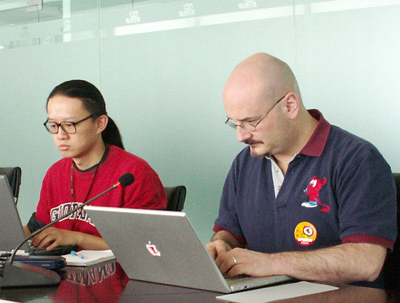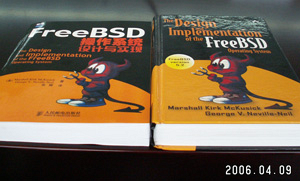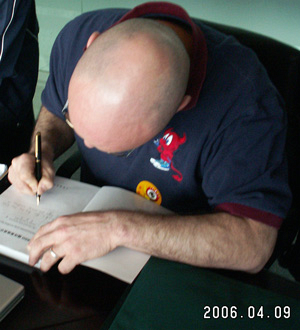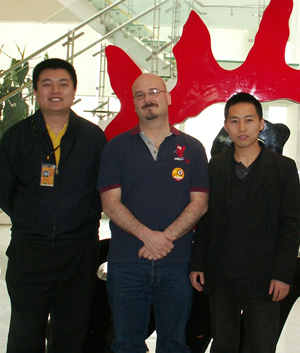"""http://aspn.activestate.com/ASPN/Cookbook/Python/Recipe/52257
#tags utility,py4zh
Title: Auto-detect XML encoding
Submitter: Paul Prescod (other recipes)
Last Updated: 2001/03/14
Version no: 1.0
Category: XML
推荐:: 发件人: 清风
回复: [email protected]
收件人: [email protected]
日期: 2006-1-18 上午1:27
主题: Re: [python-chinese] 如何取得一个文本的编码格式?
"""
import codecs, encodings
"""Caller will hand this library a buffer and ask it to either convert
it or auto-detect the type."""
# None represents a potentially variable byte. "##" in the XML spec...
autodetect_dict={ # bytepattern : ("name",
(0x00, 0x00, 0xFE, 0xFF) : ("ucs4_be"),
(0xFF, 0xFE, 0x00, 0x00) : ("ucs4_le"),
(0xFE, 0xFF, None, None) : ("utf_16_be"),
(0xFF, 0xFE, None, None) : ("utf_16_le"),
(0x00, 0x3C, 0x00, 0x3F) : ("utf_16_be"),
(0x3C, 0x00, 0x3F, 0x00) : ("utf_16_le"),
(0x3C, 0x3F, 0x78, 0x6D): ("utf_8"),
(0x4C, 0x6F, 0xA7, 0x94): ("EBCDIC")
}
def autoDetectXMLEncoding(buffer):
""" buffer -> encoding_name
The buffer should be at least 4 bytes long.
Returns None if encoding cannot be detected.
Note that encoding_name might not have an installed
decoder (e.g. EBCDIC)
"""
# a more efficient implementation would not decode the whole
# buffer at once but otherwise we'd have to decode a character at
# a time looking for the quote character...that's a pain
encoding = "utf_8" # according to the XML spec, this is the default
# this code successively tries to refine the default
# whenever it fails to refine, it falls back to
# the last place encoding was set.
bytes = (byte1, byte2, byte3, byte4) = tuple(map(ord, buffer[0:4]))
enc_info = autodetect_dict.get(bytes, None)
if not enc_info: # try autodetection again removing potentially
# variable bytes
bytes = (byte1, byte2, None, None)
enc_info = autodetect_dict.get(bytes)
if enc_info:
encoding = enc_info # we've got a guess... these are
#the new defaults
# try to find a more precise encoding using xml declaration
secret_decoder_ring = codecs.lookup(encoding)[1]
(decoded,length) = secret_decoder_ring(buffer)
first_line = decoded.split("\n")[0]
if first_line and first_line.startswith(u"-1:
quote_char,rest=(first_line[quote_pos],
first_line[quote_pos+1:])
encoding=rest[:rest.find(quote_char)]
return encoding













